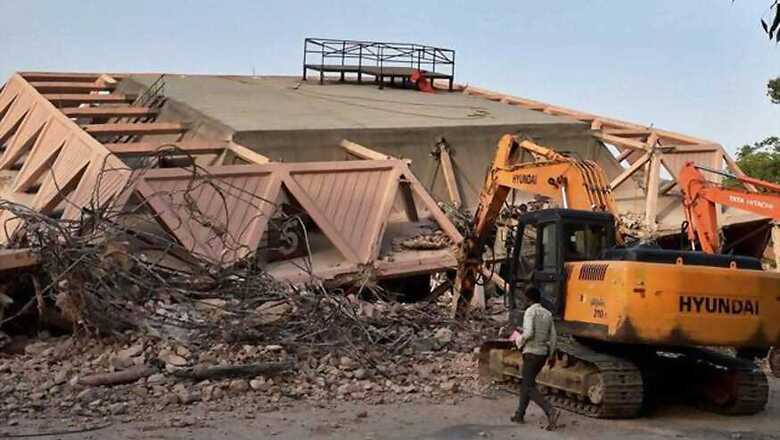
views
New Delhi: Days after the National Green Tribunal (NGT) gave a green signal for the redevelopment of the India Trade Promotion Organisation (ITPO) complex at Pragati Maidan despite not having the required clearances, the Delhi government on Friday issued show cause notices to the developer for violation of air pollution norms.
On Wednesday, NGT chairperson in his judgment gave a green signal to the project, even though the work at the site had begun without the required clearances under the Air (Prevention and Control of Pollution) Act, 1981 and Water (Prevention and Control of Pollution) Act, 1974.
News18.com had, on September 11, first reported that the landmark structures at Pragati Maidan were demolished in April while permissions were sought nearly six months later.
As the air quality in the capital continued to dip, Delhi environment minister on Friday said that that the government had found that the project was violating dust control mitigation measures.
"We found large scale violations of dust control measures at Pragati Maidan construction site during a surprise inspection. We directed the Delhi Pollution Control Committee (DPCC) to immediately issue a show cause notice," state environment minister Imran Hussain said.
The NGT order, meanwhile, noted the petitioner's concern but refused to take any penal action against the project proponents, saying that it was for the regulatory authority to take appropriate action.
The tribunal, however, said that it was necessary for the Union environment ministry and other regulatory authorities to ensure that each of the conditions of the environmental clearance are meticulously complied by monitoring the project closely.
It further directed that physical inspections of the project site be held periodically to ensure that the conditions of the environmental clearance are complied with both during the construction and the operational phases.
A signed affidavit submitted to the National Green Tribunal by the Delhi Pollution Control Committee (DPCC) — the Capital's pollution watchdog — said, "That it is most respectfully submitted that Delhi Pollution Control Committee had received the application for Consent to Establish (CoE) under the Water Act 1974 and Air Act 1981 from the project proponent on 9.10.2017, which is under consideration." These permissions, sources in the Delhi government said, had still not been given.
The issue of the CoE was brought up on Monday, during the final arguments on the plea filed by environmental activist Verhaen Khanna, seeking the quashing of the environmental clearance (EC) given to the project. The counsels for the project proponents are likely to present their final arguments on Tuesday.
Simply put, the CoE is the permission that industries or activities must obtain to establish itself, before the actual commencement of the work to ensure water or air isn't polluted, explained DPCC officials.
ITPO had given the Rs 2,254-crore contract to build the project to the National Building Construction Corporation (NBCC) in 2016. The plan for the complex includes a hotel, a mall, a multi-level food court, water-bodies display and a helipad.




















Comments
0 comment